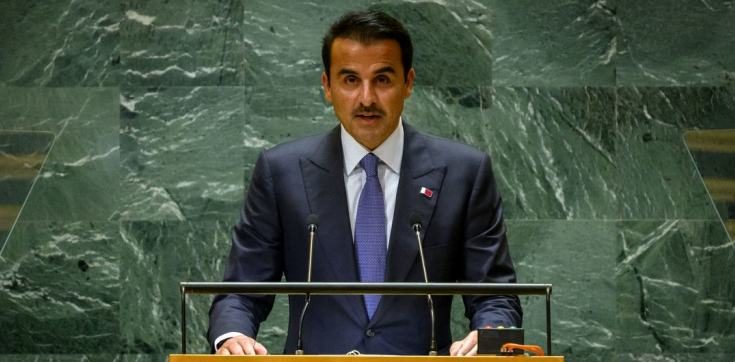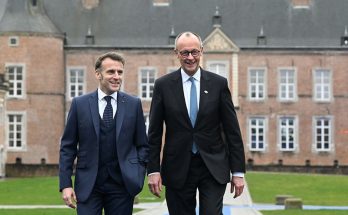#Gaza, #Qatar, #UNGA, #Israel, #IsraelGaza
The international community bears responsibility for its failure to stop the catastrophe in Gaza, the Amir of Qatar told world leaders at the UN General Assembly on Tuesday, emphasizing that after almost a year of conflict, it is no longer tenable to speak of Israel’s right to defend itself without being complicit in justifying their actions.
Speaking at the Assembly’s high-level debate, Sheikh Tamim Bin Hamad Al Thani described the “blatant aggression” against Palestinians in Gaza as the “most barbaric, heinous, and extensive” breach of human values, international charters, and norms.
“This is not a war as commonly understood in international relations, but a crime of genocide, by means sophisticated weapons against a people trapped in a detention camp, where there is no escape from a barrage of aerial bombing.”
Expressing opposition to violence and the targeting of civilians by any party, he stressed that “with all that has taken place and continues to be take place, it is no longer tenable to speak of Israel’s right to defend itself in this context without being complicit in justifying the crime.”
The Amir said it was unfortunate that the Security Council failed to enforce its ceasefire resolution in Gaza and that it did not grant full UN membership to the State of Palestine, despite a General Assembly resolution.
“The State of Palestine’s full UN membership neither establishes its sovereignty nor ends the occupation, but at least it sends a clear message to the far-right government involved in challenging international legitimacy that force does not eliminate rights.”
In addition to its humanitarian efforts, Qatar has engaged in mediation alongside Egypt and the United States to end the conflict in Gaza and secure the release of prisoners and detainees. Despite challenges and attempts to obstruct these efforts, “we will continue our mediation to resolve disputes through peaceful means,” he affirmed.
The Amir also expressed concern over the escalation in Lebanon, particularly the targeting of communication devices with complete disregard for the identity or location of those affected.
He also referred to other conflicts and crisis, including Yemen, Syria, Sudan and Libya, and the war between Russia and Ukraine, urging peaceful settlements of dispute, in line with UN Charter and international law.
In conclusion, the Amir reaffirmed Qatar’s commitment to working with international partners and the United Nations to strengthen peace, security, sustainable development, human rights, and the rule of law, to achieve a better future for all.





